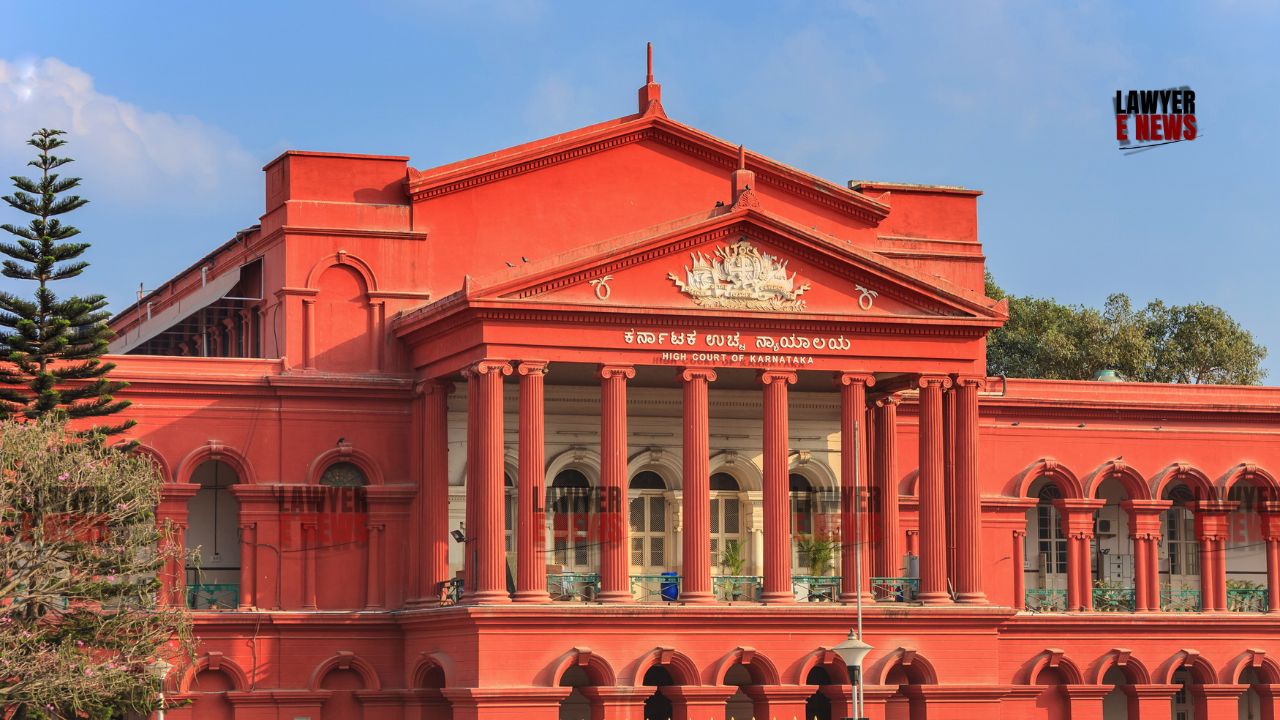-
by sayum
14 February 2026 2:22 PM



Karnataka High Court directed the Union of India to retrospectively promote retired IRS officer Manjunath I. Pujar after finding procedural faults in the Central Administrative Tribunal’s (CAT) decision. The High Court quashed CAT’s orders denying promotion based on a sealed cover policy that had deferred Pujar’s case while promoting his juniors.
The petitioner, Manjunath I. Pujar, had served as an officer with the Indian Revenue Service and was due for promotion to Deputy Commissioner of Income Tax (DCIT) on April 1, 2018. The Departmental Promotion Committee (DPC) held on July 23, 2018, however, deferred consideration of Pujar's promotion due to the unavailability of his Annual Performance Appraisal Reports (APARs). Despite no disciplinary charges against him at the time, the DPC subsequently applied the "sealed cover" procedure after a charge memo was issued against him on October 30, 2018. Pujar contended that delaying his promotion on this basis violated his rights, as his junior colleagues had already been promoted.
Following unsuccessful attempts before the Central Administrative Tribunal, Pujar filed a writ petition with the High Court seeking quashing of CAT’s orders and instructions for retrospective promotion.
Improper Application of Sealed Cover Procedure: The court noted that Pujar’s promotion had been deferred initially due to missing APAR records, which was an administrative lapse. The DPC should have either ensured the availability of records for all candidates or deferred promotions for all affected officials until APARs were received. Delaying only certain officers’ promotions was "unjust and arbitrary."
Guidelines on Sealed Cover and Review DPC: Citing an Office Memorandum (OM) from January 23, 2014, the court clarified that sealed cover procedures cannot apply retrospectively when no disciplinary issues were pending at the time of initial DPC consideration. This principle is intended to ensure that any officer cleared of disciplinary concerns when juniors are promoted should also receive promotion, irrespective of any issues that arise afterward. As noted in the OM, “If a junior has been promoted… the official would be considered for promotion if he/she is clear from vigilance angle on the date of promotion of the junior.”
Review DPC Interpretation: The court found the arguments from the respondent’s counsel, who contested that the 2018 proceedings did not constitute a “Review DPC,” to be unconvincing. The High Court pointed out that the DPC records explicitly identified the December 2018 session as a Review DPC, undermining the respondents’ claims.
DPC’s Obligation to Follow Procedural Clarifications: The High Court ruled that the Tribunal erred in dismissing Pujar’s case, as the Office Memoranda and DPC guidelines require consideration of a senior’s promotion if a junior has already been promoted. In Union of India v. Somasundaram Vishwanath, the Supreme Court held that Office Memoranda and departmental circulars are binding unless they explicitly contradict existing rules.
Merit of Petitioner’s Candidacy: The court observed that applying sealed cover procedures presumes the candidate’s merit for promotion, contingent upon clearance of any pending disciplinary issues. The application of sealed cover for Pujar, despite his clear record at the time his juniors were promoted, constituted procedural unfairness.
The Karnataka High Court allowed the writ petition, granting a writ of certiorari to quash CAT’s orders. It instructed the respondents to open the sealed cover containing Pujar’s records, consider him for notional promotion as DCIT from April 1, 2018, the date his juniors were promoted, and finalize his promotion status within eight weeks. However, the court clarified that Pujar would not receive back wages for the period, given his retirement in September 2019.
This judgment underscores the importance of procedural fairness in promotions and emphasizes the guidelines governing sealed cover procedures and Review DPCs. The ruling strengthens precedents supporting the promotion rights of senior officials when their juniors have been advanced, even if subsequent disciplinary issues arise.
Date of decision: November 8, 2024
